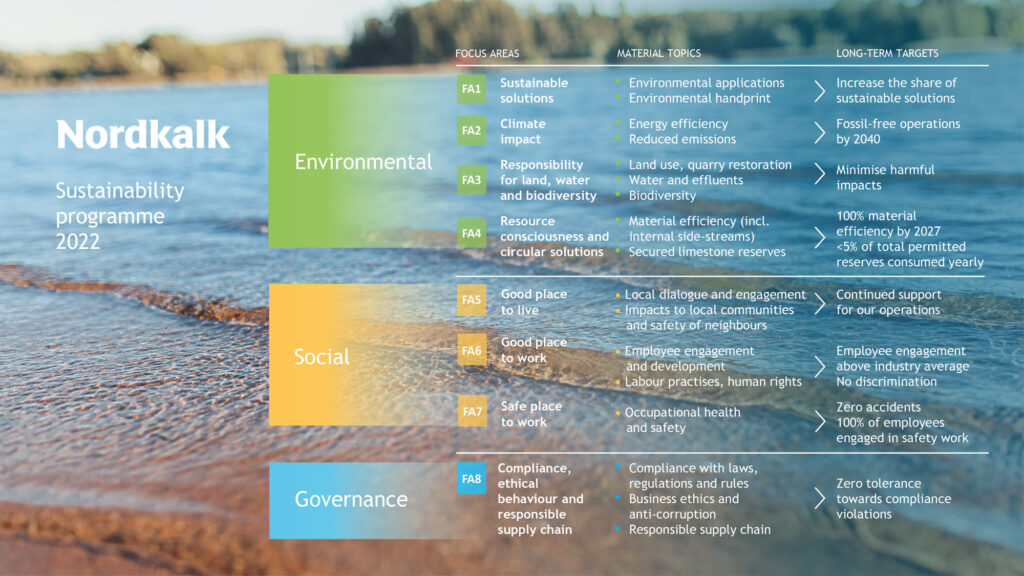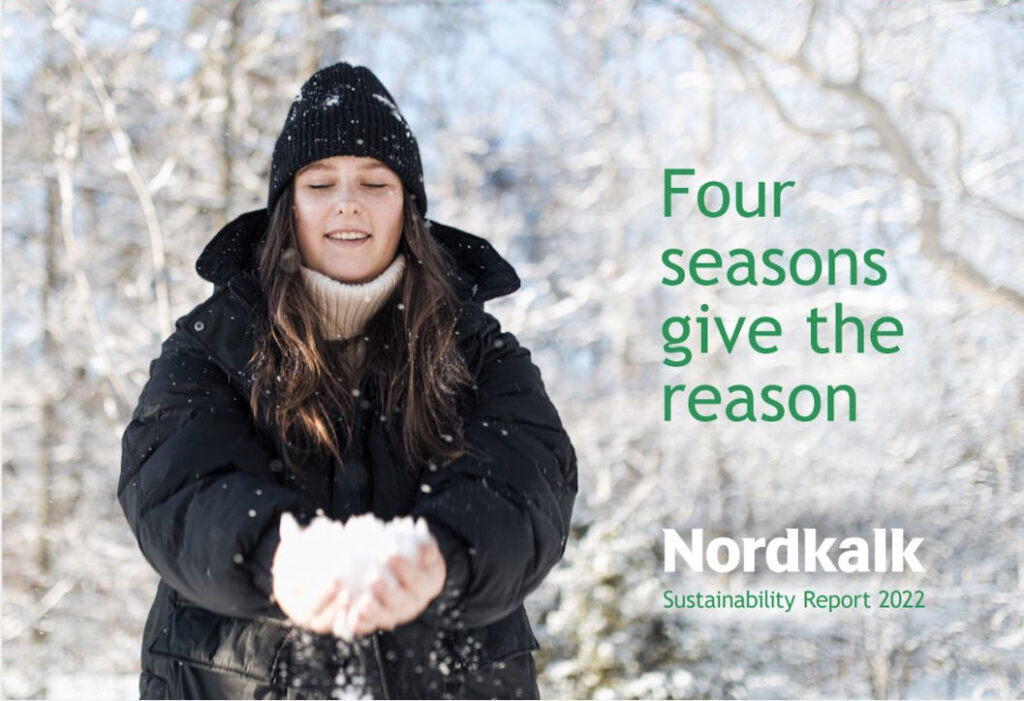Our vision is to become the leading limestone player focused on sustainable solutions.
In practice, this means that we do the following:
1. actively develop new products and solutions that support our customers in reducing their environmental impact,
2. focus on reducing our carbon emissions and the other harmful impacts of our operations,
3. increase our engagement in circular solutions and strive for total utilisation of all extracted material with a 100% material efficiency target.
We aim for fossil-free production by 2040. Concrete examples of this are our Nordkalk Next and Nordkalk Complete products. Next-level products are manufactured using either at least 33% secondary resources or fossil-free energy (scope 1+2). Complete-level products are made with 100% secondary resources or fossil-free energy (scope 1+2). Nordkalk sustainable product lines help our customers make their own production and operations more sustainable. For more information on our sustainable brands and definitions, please contact: info@nordkalk.com.
Our future success lies in the continuing commitment of our people – we want to take good care of our personnel and make sure that they can do their work safely every day. Safety is our first priority and our ultimate target is zero accidents. We want to be a good neighbour in the local communities and a preferred partner for our customers. To ensure the profitable growth of our business, we develop our limestone reserves for the future and focus on continued improvement of our operations.
Our sustainability work is guided by the Sustainability Programme, focusing on the impacts of our operations and based on company strategy and stakeholder expectations from environmental, social and economic perspectives. Our Sustainability Programme is structured into eight focus areas consisting of 18 material aspects. Each area contains dedicated management commitments, long-term goals and Key Performance Indicators (KPI’s). Our long-term horizon on corporate sustainability is in correspondence with UN Sustainable Development Goals (2030).


We use cookies to give you the best internet experience. By giving consent, you accept the use of cookies in accordance with our cookie policy.

When you visit any web site, it may store or retrieve information on your browser, mostly in the form of cookies. Control your personal Cookie Services here.